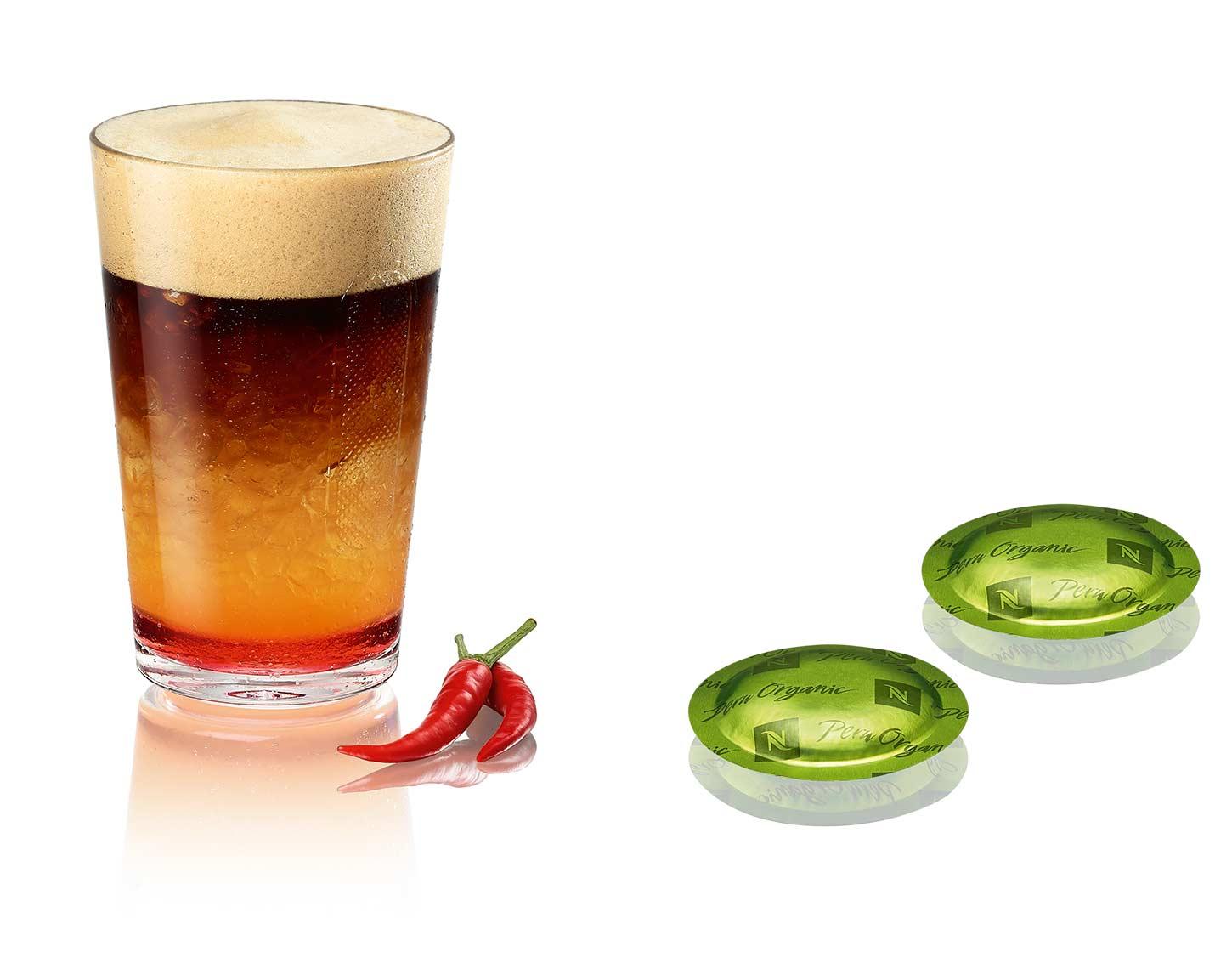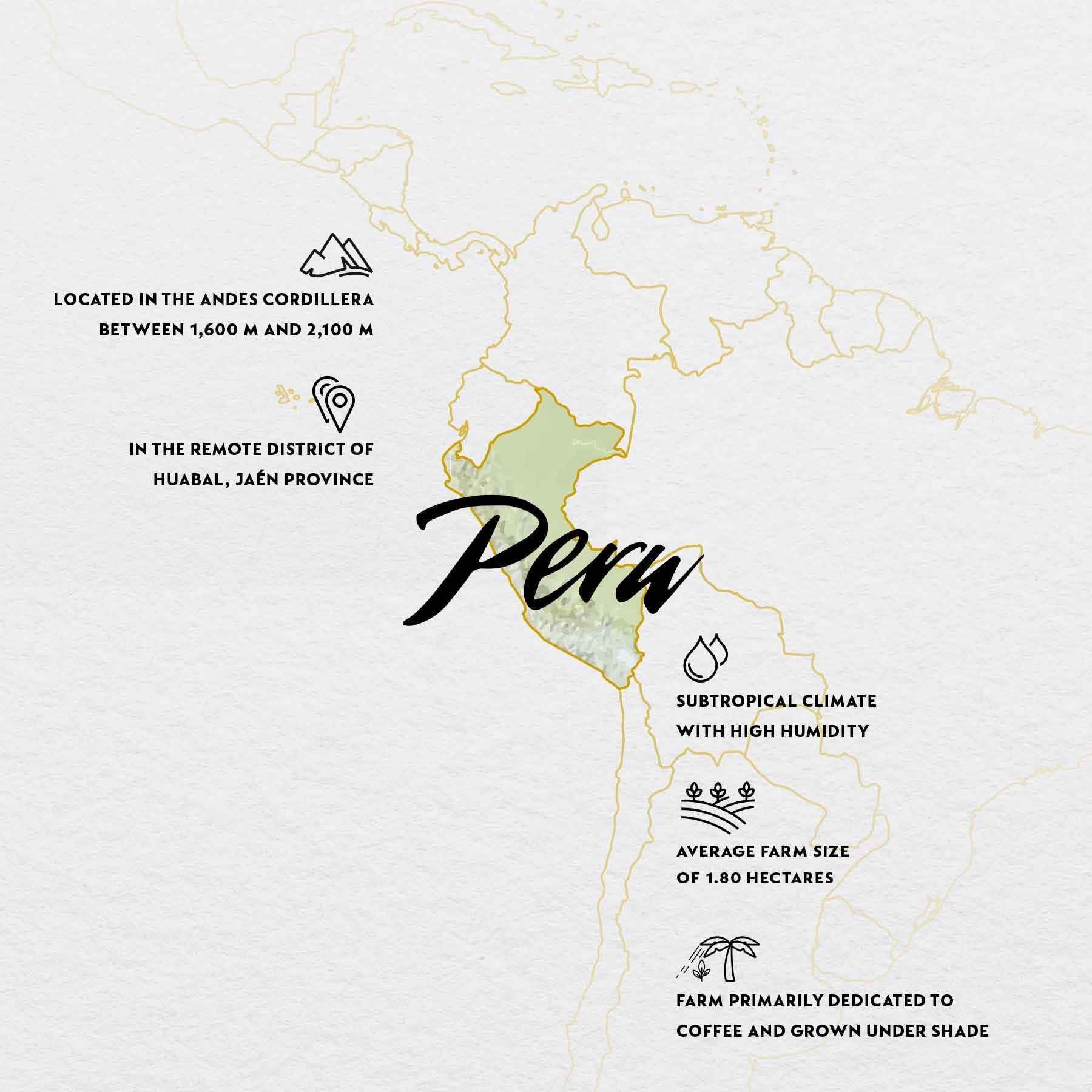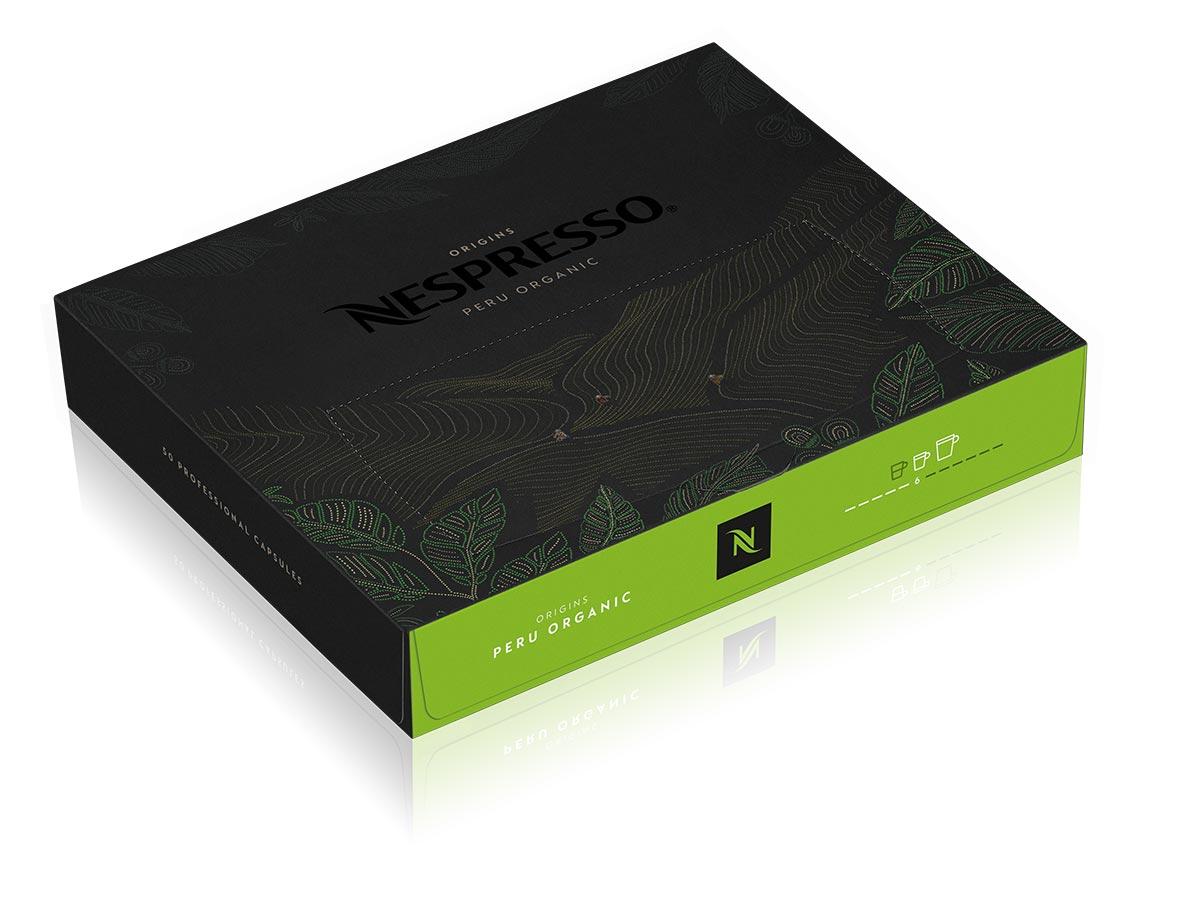
Article published in: May 2020
Article updated in: April 2025
A PROMISING ORIGIN
The launch of our first organic coffee is a story with its beginnings in 2014. It was then that we began to explore Peru, working with farmers to gain a closer understanding of its unique coffee heritage, leading to the launch of the Limited Edition Peru Secreto in 2015.
To some extent, Peruvian coffees were off the map, a country less known for its coffee than its more celebrated neighbours, such as Brazil and Colombia. But among those in the know, Peru is highly regarded for its speciality coffee: it’s the world’s leading exporter of organic coffee. Such coffees are rare, accounting for just two percent of global coffee production, with Mexico and Ethiopia the other major exporters.
EXPLORING ENVIRONMENTAL BEST PRACTICES
Following these early days in Peru, our agronomists approached a community of farmers producing coffee certified as organic.
Organic production was of particular interest, since it aligned perfectly with the spirit of the Nespresso AAA Sustainable Quality™ Program, which has always strived to protect the natural ecosystems of coffee terroirs while improving the livelihoods of coffee producers.
Established in 2003 with the Rainforest Alliance, the AAA Program now spans over 168,500 farmers across 18 countries. Its farm management practices support biodiversity conservation and the replenishment of natural resources, and AAA farmers adopt these practices on their farms and in the landscapes that surround them.
ORGANIC COFFEE FARMING:
A CLOSER LOOK
All well-managed agricultural systems should respect the various production components: soil quality, biodiversity, water management, farmer expertise and local climatic conditions.
In the case of organic coffee farming however, there is a specific reliance on natural cycles and processes, which eliminate the use of synthetic agricultural inputs for fertilisation and pest management. This brings other potential risks – particularly in tropical environments – where a higher incidence of pests and diseases can affect the quality and yield of crops.
Certification is, quite rightly, a significant commitment for farmers, taking three years. Only in year four can coffee then be sold as certified organic. On the other hand, certification offers farmers significant opportunities for differentiation, attracting premiums as a result.
ORGANIC PRODUCTION DEFINITION, USDAORGANIC PRODUCTION IS A SYSTEM THAT INTEGRATES “CULTURAL, BIOLOGICAL AND MECHANICAL PRACTICES” THAT FOSTER CYCLING OF RESOURCES, PROMOTE ECOLOGICAL BALANCE AND CONSERVE BIODIVERSITY.
AAA AND PERU ORGANIC:
A PERFECT MATCH
Organic farming is a natural fit with the evolving AAA Program and its quest for continuous improvement and represents a positive step forward in our commitment to protect nature and restore biodiversity.
That’s why we’re proud to introduce Peru Organic – Nespresso’s first organic coffee – crafted according to the strictest supply chain controls and thanks to extensive on-the-ground work with Peruvian farmers.

Peru Organic exhibits a lively acidity with elegant fruity tones and a subtle touch of tasty cereals. It completes the Nespresso Professional Origins Range which already includes three unique coffees, each from a single country of origin.
A typical AAA organic farm in Peru


NEW PRACTICES, NEW CAPABILITIES
All this work means that, as well bringing an exciting new coffee to our customers, our agronomists have developed specific organic production know-how. This has led to the creation of a new set of AAA farm management practices, providing a platform for highly productive and regenerative coffee cultivation across all AAA sourcing regions.
EDGAR OMAR PERALTA, FORMER NESPRESSO AAA ORGANIC PROGRAM MANAGER, JAÉN, PERU“WE HAVE BEEN WORKING IN SHADE MANAGEMENT WITH AGROFORESTRY SYSTEMS. IT’S BEEN HELPFUL TO INCREASE THE AMOUNT OF ORGANIC MATTER IN THE SOIL AS WELL AS TAKING ADVANTAGE OF ORGANIC WASTES AS INPUTS FOR ORGANIC FERTILISATION IN THE FIELDS.”
TOWARDS A REGENERATIVE FUTURE
In regions where organic production is already the norm, experience tells us that the new AAA practices will provide an improved yield of high-quality coffee – benefiting both farmers and Nespresso customers alike. And in other cases, where a transition to organic production is economically viable and farmers are keen to do so, we intend to provide the human and economic incentive to make it happen.
Both of these scenarios will lead to numerous new organic coffee offerings in the years to come.
This evolution of the AAA Program supports our vision of a future that encourages far greater application of nature-based solutions, enabling economically viable and socio-environmentally sustainable production.
A future that is truly regenerative.

